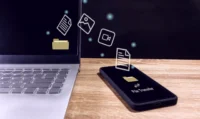Now Reading: Your Guide to Ethical Decision Making
-
01
Your Guide to Ethical Decision Making
Your Guide to Ethical Decision Making

Navigating Moral Mazes How Education Shapes Ethical Decision Making
Have you ever been frozen at a crossroads, faced with a decision where the “right” path was anything but clear? Whether in a high-stakes business meeting or a deeply personal conflict, the weight of making a difficult choice can be overwhelming. We often rely on our gut, hoping our intuition points us toward the correct answer. But in a world filled with complexity, noise, and conflicting values, just going with your gut can feel like navigating a storm without a compass. What if making the right choice was not just a guessing game but a skill you could develop, strengthen, and rely on with confidence? The solution lies in a proactive approach to building your moral foundation through education.
Why Gut Feelings Are Not Enough
Relying on intuition alone for critical decisions is a risky strategy. Our gut feelings are heavily influenced by unconscious biases, emotional states, past experiences, and the immense pressure of the moment. When we are stressed, tired, or afraid, our judgment can become clouded, leading us to make choices that are reactive rather than thoughtful. We might choose the path of least resistance to avoid conflict or opt for a short-term gain that leads to long-term regret. This is because intuition is not a pure source of moral truth; it is a rapid-fire cognitive process shaped by everything we have ever absorbed, both good and bad.
This is where formal and informal education in ethics provides a crucial advantage. It equips us with a structured framework to analyze a situation from multiple angles, moving beyond our initial emotional response. Education gives us the tools to slow down, question our own assumptions, and consider the broader impact of our actions on others. It provides a logical scaffolding that helps us build a more reasoned and defensible decision, one that we can stand by even when it is challenged. It transforms decision-making from a purely reactive instinct into a proactive and intentional skill.

Building Your Ethical Toolkit Key Educational Pillars
True ethical competence is not about memorizing a list of rules. It is about building a mental toolkit that allows you to dismantle complex problems and approach them with clarity and integrity. Education is the process of forging these tools. Two of the most important pillars in this educational journey are understanding established ethical frameworks and cultivating the intertwined skills of critical thinking and empathy. These pillars provide both the logic and the humanity required for sound judgment.
When you deliberately learn about different ethical approaches, you gain new lenses through which to view your dilemmas. This process expands your perspective and prevents you from getting trapped in a single, narrow point of view, allowing for more robust and well-rounded conclusions.
Understanding Ethical Frameworks
At first, concepts like “Utilitarianism” or “Deontology” might sound like dry academic terms, but they are incredibly practical tools for real-world problems. Utilitarianism, for example, encourages you to ask, “Which option will produce the greatest good for the greatest number of people?” This forces you to look beyond your own interests and consider the consequences for the entire community or team. It is a powerful tool for decisions involving resource allocation or public policy.
On the other hand, a deontological approach focuses on duties and rules. It asks, “What is my moral duty here, regardless of the outcome?” This framework emphasizes principles like honesty, fairness, and keeping promises. It acts as a moral guardrail, preventing you from justifying a harmful action even if it leads to a seemingly positive result. By learning to apply both frameworks, you can analyze a problem from the perspective of both outcomes and principles, leading to a much more thorough ethical evaluation.
The Power of Critical Thinking and Empathy
Ethical education is also fundamentally about honing your ability to think critically and feel empathetically. Critical thinking is the skill of dissecting a situation, identifying the facts, questioning assumptions, and anticipating potential consequences. It is the practice of asking “why” and “what if” instead of simply accepting things at face value. It helps you see past misinformation, emotional manipulation, and your own blind spots.
Empathy is the critical counterpart to logic. It is the ability to step into someone else’s shoes and understand their perspective and feelings, even if you do not agree with them. Education fosters empathy through case studies, literature, and open discussion, exposing us to experiences and viewpoints far beyond our own. When you combine sharp critical thinking with genuine empathy, you are not just making a technically “correct” decision; you are making a humane one that respects the dignity of everyone involved.
Putting Ethics into Practice From Theory to Action
Learning about ethics is not a passive activity; it is an active practice, much like learning a musical instrument or a new sport. Reading a book about playing the guitar will not make you a musician. You have to pick it up, practice the chords, and build muscle memory. Similarly, ethical strength is built through consistent application and reflection. The goal is to internalize these principles so they become a natural part of your decision-making process, especially under pressure.
To move from theory to action, you must actively seek opportunities to exercise your ethical muscles. This can involve engaging in discussions about ethical dilemmas with mentors or peers, which exposes you to different reasoning processes. You can also practice by reflecting on past decisions, analyzing what you did well and where you could have chosen a better path. Some people find it helpful to write a personal mission statement or a code of conduct that outlines their core values. This document can serve as a personal anchor when you face a challenging situation. The more you consciously practice, the more your ethical awareness will grow, transforming you into a person who not only knows the right thing to do but has the courage and clarity to do it.


































